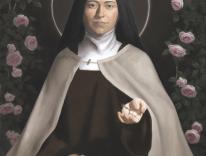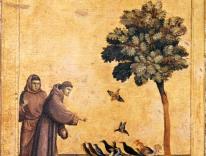The Guadalquivir River makes a dramatic loop southward as it passes the city of Córdoba on its way to the Atlantic. A Roman bridge connects the two banks; on the right bank is the magnificent Mezquita, the great mosque of Córdoba.
Every schoolboy knows (as Macaulay was fond of writing) that the Moors invaded Spain in 711 and that Córdoba, a city of Muslims and Christians and Jews, grew into a great medieval center of world culture in the ninth and tenth centuries, the home of Maimonides and Averroës.
Given today’s tensions between the West and Islam, the city’s past may seem to be one of those rare moments in history when people accepted their religious and social differences and got on with their lives in a place of beauty, diversity, and real understanding. In other words, a moment from which we can learn something.
Yet between AD 850 and 859, while the builders of the mosque were fashioning Roman and Visigothic stone into their Islamic masterpiece, forty-eight Christians, both men and women, were beheaded, their bodies thrown into the Guadalquivir. Their crime was to declare themselves Christians, and some defamed the Prophet Muhammad and his faith. Most of the martyrs were priests and monks, and their names wonderfully suggest the time and the place: Perfectus, Alodia, Regollius, Servus Dei, Benildis, Pomposa, Abundias, Salomon, Eulogius. Some came from what used to be called mixed marriages: Muslim fathers, Christian mothers; Christian fathers, Muslim mothers. Some were Christians who had converted to Islam and later changed their minds. Others were Muslims who converted to Christianity.
Their story, as told by Jessica A. Coope in her book The Martyrs of Córdoba: Community and Family Conflict in an Age of Mass Conversion (University of Nebraska Press), set me to thinking, not so much about martyrdom, but about the past and about our own—my own?—insensitivity to it. Is it possible to spend much time anywhere without walking on the real or ghostly graves of the despised and the rejected? In Córdoba, I have looked up at the arches of the Mezquita; I have walked across the Roman bridge; I have sat by the Guadalquivir where the martyrs’ bodies were dumped, drinking the regional sherry called montilla and eating cool green olives with the sun warming my face. At the time, I was ignorant of Perfectus and Benildis and Eulogius. If I had known of them, would it have made any difference? Should it have made a difference? Or would I have agreed with Hostegesis, bishop of Málaga, who condemned the martyrs as boat rockers and who comes across in Coope’s book as a medieval pol-priest, someone who liked to have a drink with his Muslim masters and who slipped them the census lists of Christians for tax purposes?
My education in martyrdom in Córdoba was the second time I have been brought up short after the fact. I once spent a few days in the pleasant Argentinian town of Martínez, up the Rio de la Plata from Buenos Aires. I was visiting a manufacturing plant. At the entrance was a tree the locals called el borracho, my host told me, because of its lavish blood-bright blossoms—“the drunk.” The place couldn’t have been more intoxicating or charming. Only later, thanks to Jacobo Timerman’s Prisoner without a Name, Cell without a Number (University of Wisconsin Press), did I learn that Martínez was one of the stops for los desaparecidos on their way to permanently disappearing during the Argentine military’s “dirty war.”
Thinking it over, I’m glad that I have never been Macaulay’s all-knowing schoolboy. He should remain the fiction that he always was. Tourists should be allowed to get out of their lumbering tour buses with a clear conscience. Who hasn’t said, “It wasn’t my fault”? Who hasn’t rejected the past for its barbarity and felt that we’d never permit such behavior ourselves? We’re wrong, of course, but maybe we couldn’t go on without feeling supremely superior. Somehow, our moral blunders never seem quite so awful as those of the past.
Still, I’m glad that my traveling days are over. Much as I’d like to revisit Córdoba, I’ll let Federico García Lorca’s horseman do it for me, that doomed rider who never got there even though he knew the way.
Please email comments to [email protected] and join the conversation on our Facebook page.
Share
Previous Story
Dreams
Next Story
Alito & Armageddon

